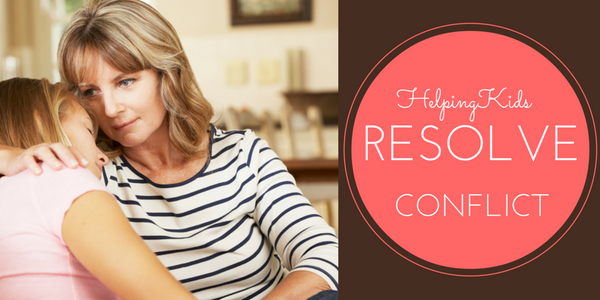We speak to other people every day. Whether you're talking to a close friend, family member, or mere acquaintance, it's inevitable that sometimes you'll say something you wish you hadn't. Social faux pas and blunders will always happen.
I call this "foot in mouth" syndrome. It occurs at those times when our comments, questions, or opinions fall flat or even offend the person we're talking to. We say something stupid, harsh, unsolicited, or downright cringe-worthy.
Open mouth, insert foot.
Because these unfortunate moments are inevitable, it's important that you know how to rebound or recover as quickly, and with as little carnage, as possible. These painful situations vary widely, so we'll cover the most common instances here.
"When are you due?"
Asking a woman when she is due implies she is pregnant. To imply that a woman is pregnant means that you believe her belly appears larger than normal. This is extremely problematic if, in fact, the woman is not actually pregnant.
Basically, you've just told her she is fat.
How can you recover if you commit this particular blunder?
1. Apologize. If you ask someone when she is due, and she tells you she isn't pregnant, you must immediately apologize. Her feelings will be hurt, and you must tell her how sorry you are for offending her. If she tells you she isn't pregnant, say something like, "I am so very sorry. I made an assumption I should not have. Can you please forgive me?"
2. Tell a similar personal story. Try to be funny here, if possible. Tell that story about when someone said something similar that totally offended you. Afterward say, "That situation totally hurt my feelings, and I cannot believe I did the same thing to you."
3. Move on. Hopefully she will forgive you. Regardless, it's important to move on at this point and not make it worse by dwelling on it. Hopefully she didn't punch you in the head or cause any life-altering bodily harm. If she did, it may be more difficult to move on. Move on anyway, even if it means moving on to the ER for treatment of your concussion.
Calling someone by the wrong name, or not remembering their name at all
Everyone likes to be known and remembered, and knowing someone's name shows they are important to you. If you forget someone's name or call them by the wrong name altogether, you have basically made that person feel like they are not important enough to know or remember.
What steps can you take to maneuver through this social minefield?
1. If you and your spouse walk up to someone whose name you can't remember, introduce your spouse first. For example, say, "This is my husband, Ryan." Usually at that point, the other person will be prompted to say, "Nice to meet you, Ryan. I'm so-and-so." Once that person states their name, remember it!
2. If the situation is not like #1 above, simply admit you can't remember. Say, "I'm so very sorry, but I cannot remember your name. Could you please remind me what it is?" It's better to be honest and polite than to fake your way through it.
3. If you call someone by the wrong name altogether, apologize. Admit your mistake, ask for forgiveness, and then ask for their correct name. Most people also struggle with remembering names and are pretty quick to dish out some grace, especially if you've been honest and forthcoming.
4. Be sure to remember their name once they tell you. Repeat it back to them out loud while you're talking to them. Everyone wants to hear their name, so work it into your conversation. Say things like, "Well, Jodie..." whenever possible. They will like hearing their name, and saying it often will help you remember it for the future. PS- Only call them "Jodie" if that is, in fact, their name.
Assuming someone's age (and not even being close!)
Telling someone "You have lovely grandchildren!" is great... if that person actually has grandchildren. If you say that to someone and find out that those are actually their own children you have essentially aged them by about twenty years (or more). They may be understandably offended.
You can recover, however.
1. Apologize. Are you sensing a theme here? Anytime we screw something up, we need to admit it and ask for forgiveness. Taking responsibility for mistakes is something that does not happen often enough these days. So if you make this particular mistake, apologize.
2. Move on. There really is not much you can say to undo this one, and any attempt to do so will simply seem like you are making excuses for yourself. Don't do that. Just apologize and move on. Compliment their children, talk about something else, or tell an embarrassing story of your own.
Ranting about a business you have a problem with, and afterward finding out the owner heard you
In the age of the internet, this happens more and more.
Maybe you've had a bad experience with a company or business, and you feel led to rant about it on social media. Don't. The proper way to deal with this kind of issue is to speak directly to the owner or manager of the business. Most folks are happy to resolve the problem reasonably, especially if you live in a small town. It's important to remember that everyone can have a bad day from time to time, and there may be reasons for the bad experience that you don't yet understand. Seek out answers and try to work toward a resolution.
The next step, if you've exhausted all other avenues, would be to file a formal complaint with the Better Business Bureau, write an accurate but nonemotional review on the business's website or social media pages, or contact other authorities. Out-of-control rants really don't help anything and usually make a situation worse.
If you've already gone too far with a public rant, and you find out the business owner heard you, there are a few steps you can take to rectify the situation.
1. Delete the post. If there is anything you can do to remove what you have said, do so. You don't want to make the situation worse. If your comments were made verbally, move on to #2.
2. Apologize to the owner. You don't have to apologize for having the initial bad experience, but you should apologize for ranting about it publicly. No one wants their name dragged through the mud or their reputation ruined. Public negative statements should be a last resort rather than a first response.
3. Work with the owner to resolve the issue. Tell the owner, "I should not have taken this public until I talked to you and gave you the opportunity to correct the issue first." Everyone makes mistakes, and you should give the owner the chance to fix it. Work toward a win-win compromise. You may not get everything you want, but aim for a reasonable solution that will be acceptable to you both. If you ranted on social media and end up resolving your issue with this business, be sure to make a follow-up post telling that story. It's fair.
Personal questions that illicit an uncomfortable response (or worse... tears)
It's sad to say, but in your lifetime you will probably make someone cry at least once with your words. Even if you don't cause tears, you will, inevitably, make someone uncomfortable by something you say. Common examples are asking someone if they have children (and then finding out they are unable to conceive), asking if someone's pregnancy was planned or a surprise, commenting that someone has too few or too many children, or making comments about a blended or interracial family.
A common one I hear when we're out with our five children is, "Don't you know what causes that?" It bothered me for awhile until I learned to respond with, "Yes, we do, and obviously we're very good at it!"
I've developed a thicker skin (most people do) over the years, but we have to be aware that not everyone has. These types of questions and statements can really hurt.
We all have these "open mouth, insert foot" moments when we wish we could rewind and say something different (or nothing at all). Rebounding from these moments involves the following steps:
1. Apologize. Like a million times. And then a million more. If you make someone visibly uncomfortable or they start to cry, you need to apologize immediately. Keep it simple, don't make excuses, and don't give explanations for your blunder. Just apologize.
2. Ask if there is anything you can do to right this wrong. Sometimes there is, and sometimes there isn't. Regardless, it shows your sincerity to correct the situation when you ask what you can do.
3. If you pray, pray that the person can heal from the hurt you've inflicted. They don't need to know that you're doing it, but just pray for them. God is in the business of healing hearts and hurts, so turn it over to Him. You can't make that person feel better, but God can.
4. Don't repeat the same mistake. Make a mental note of what you said that hurt this person's feelings so you don't do it or say it again. If this person is a close friend or family member, some follow-up may be necessary as well. A message, text, or phone calls a few days later to reiterate your regret over the matter may be in order.
Sharing an emotionally-charged, unsolicited opinion
You should breastfeed/bottle-feed or you're a bad mother.
Good parents should/shouldn't vaccinate.
You should/shouldn't spank your kids or you're not a good parent.
You should belong to _________ church. All the other churches are terrible.
Smart people vote for Trump.
Only stupid people vote for Trump.
You'd be an idiot not to vote for Hillary.
You'd be an idiot to vote for Hillary.
Get the idea?
These controversial, emotionally-charged opinions are generally useless and don't serve to really convince anyone to change their mind anyway, so sharing them is pointless and hurtful. Parents have a difficult enough job without the input from know-it-alls who could not possibly understand every aspect of their family's situation. And I'm all for a good political discussion, but statements like those above are not good political discussion; rather, they are just nasty. Those are the kinds of opinions we should keep to ourselves unless asked (and then we should share opinions in a civil, well-researched manner, while allowing for differences of opinion and learning from them).
If you've shared an opinion that has obviously hurt someone you care about, there are ways to deal with it.
1. Apologize for hurting their feelings. Even if you are stubborn enough to believe your opinion is the only right one, you can say you're sorry for hurting the other person. We should apologize for hurting someone's feelings any time that happens.
2. See #1. There is no #2. If you've given an unsolicited emotionally-charged opinion and hurt someone's feelings, apologizing is the only way to deal with it. Oh, and for the love of everything good and holy, try not to offer up such inflammatory statements anymore. They are not helpful. At all.
Removing the foot from your mouth
All of these tips can be used to resolve a variety of social faux pas and blunders with the overall goal of restoring your relationship. You have to address the problem in order to move past it. You cannot pretend it didn't happen, you can't brush it under the rug, and you cannot avoid dealing with the matter. If your foot has been inserted in your mouth, you must remove it for your own good and for the good of the offended person. Acknowledging your blunder, communicating your regret, showing sincerity, and working to resolve the issue will go a long way toward restoring your relationship and helping it grow even stronger.














